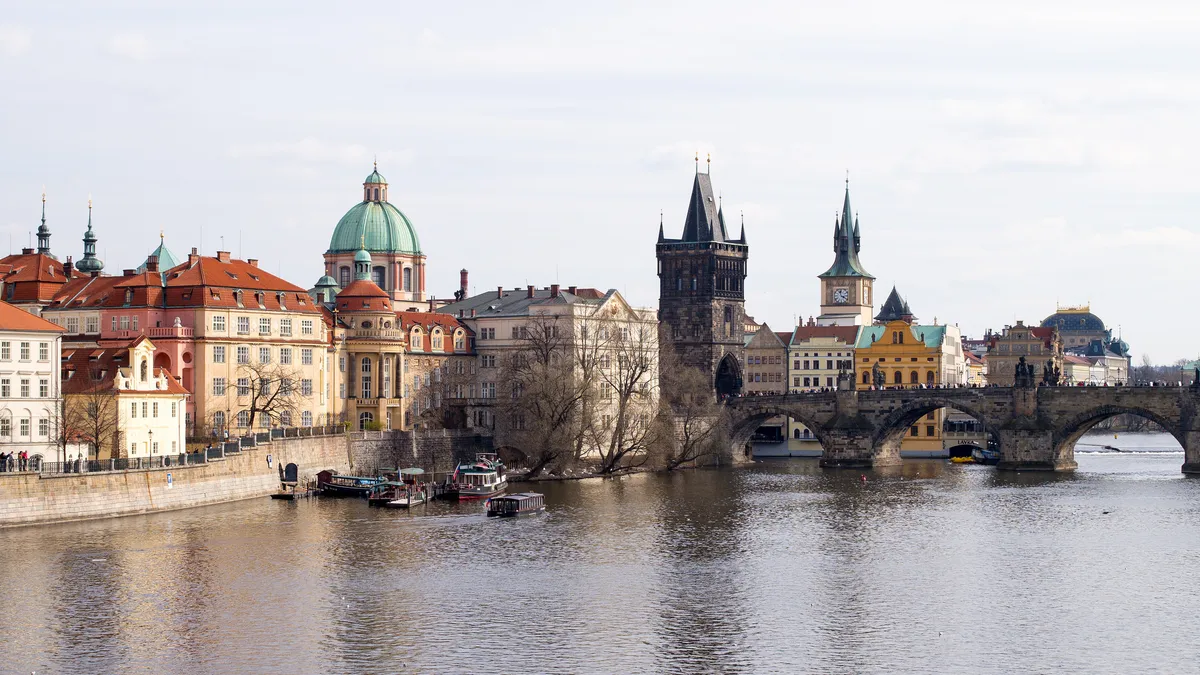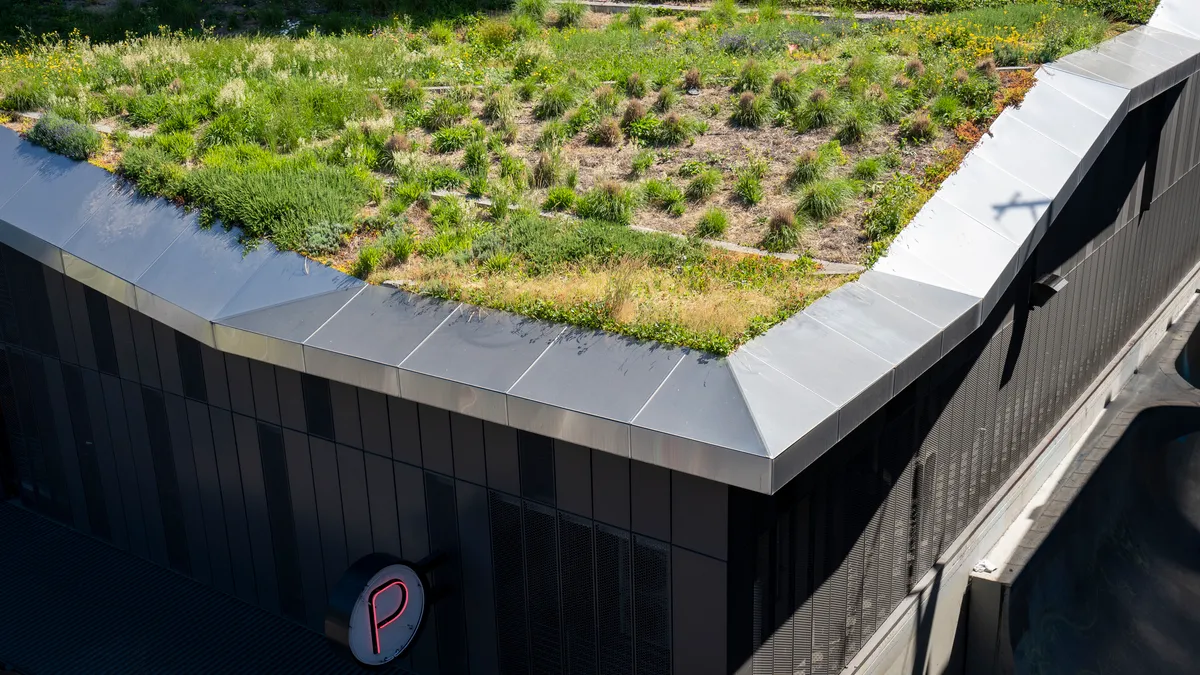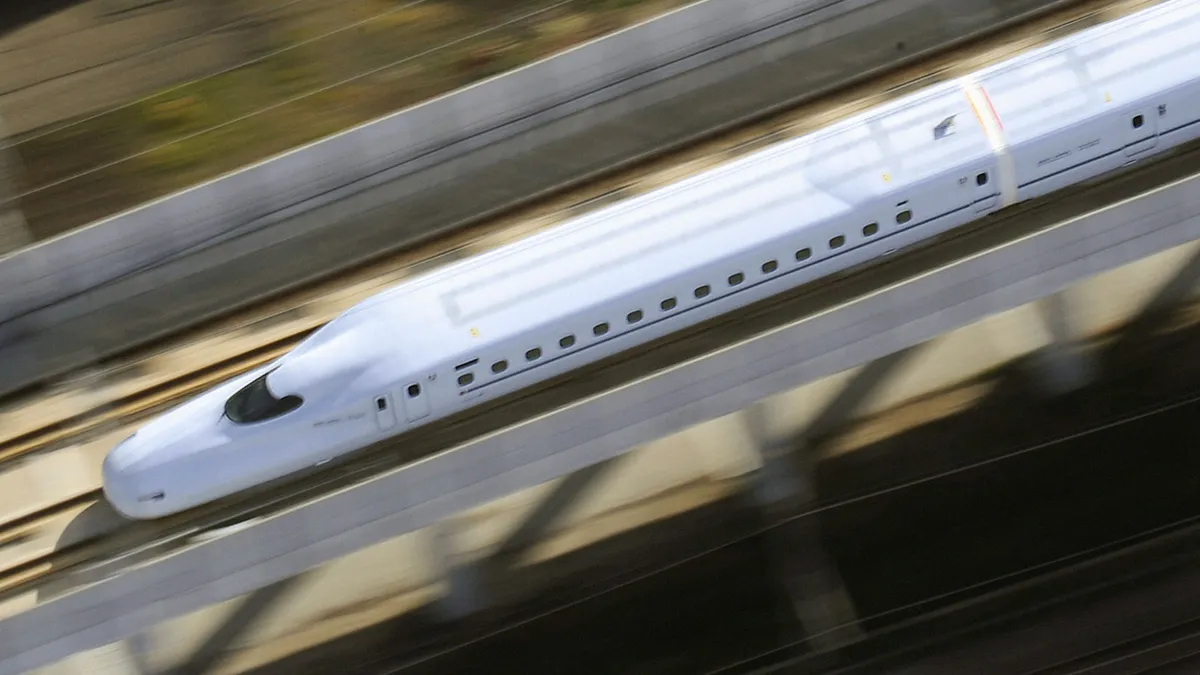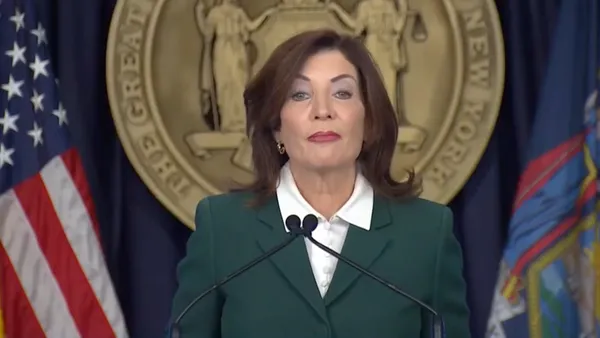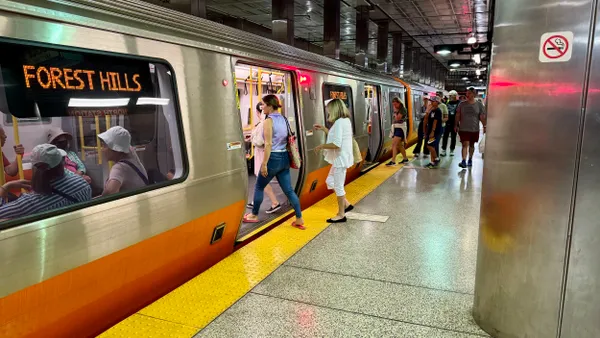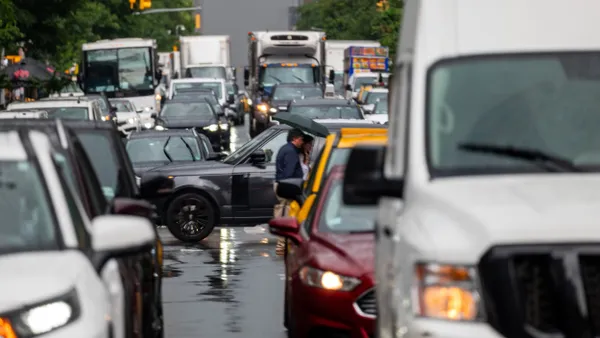Dive Brief:
- Prague will begin offering free public transit rides during declared smog emergencies to encourage commuters not to drive on the designated days, according to Prague.tv. Some city employees also will be allowed to work from home.
- The city will launch a public information campaign in February and March on the health effects of smog and reducing activities that can cause smog.
- The free transit initiative is one that was salvaged from a set of anti-smog regulations that failed last year. Prague's last anti-smog regulations passed in 2012.
Dive Insight:
The anti-smog regulations Prague's leaders tried to pass last year included many different ways to cut down on vehicle emissions, which is cited as the city's largest source of smog. One of the measures in the failed legislation was to limit driving only to vehicles sporting odd- or even-numbered license plates on certain days, a tactic that Paris has tried in the past. Another proposal would have prohibited trucks weighing over six tons from operating on smog emergency days. But a working group nixed the regulations when it determined that the combined measures would have a minimal smog reducing effect and it could cause a transportation network collapse.
Prague has tried other initiatives in the past to encourage people to ditch their cars and use transit on smog emergency days. But this is the first time passengers are being offered incentives like free rides.
Other cities and states have toyed with offering transit incentives to cut down on vehicle emissions, including some in the United States. Utah Governor Gary Herbert's proposed $19 billion budget for FY2020 includes nearly $100 million to improve air quality throughout the state. Some of the funding could go toward free transit on poor air quality days to increase transit use and decrease cars on the road. Utah Transit Authority offered "Fare Free Fridays" in the past and reports that a lack of fare does increase ridership.
Salt Lake City is among the U.S. municipalities that might benefit from this type of smog reduction action. Although unassuming to those not in the know, the city has some of the worst smog in the country due to its inversion weather patterns. The city is surrounded by mountains and inversion traps pollution around it like putting a lid on a bowl, and it doesn't ease up until another weather system blows in, which is usually about four days later but can be weeks.
Like Salt Lake City, Los Angeles is positioned near mountains that affect air flow and exacerbate smog. The city also carries the dubious distinction of being the world's most congested city, further worsening smog. The air quality in Los Angeles is reportedly already improving due to its and California's air quality improvement efforts — last month the state passed a regulation requiring all public transit buses to be zero emission by 2040 — but free transit fare on poor air quality days could be an additional solution.



